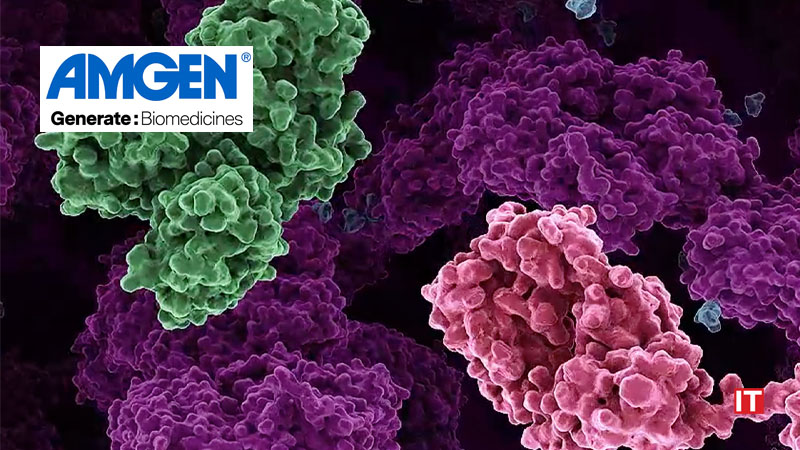Companies Partner to Leverage Generate’s Machine Learning-Enabled Technology Platform to Discover and Create Protein Therapeutics for Patients
Amgen and Generate Biomedicines announced a research collaboration agreement to discover and create protein therapeutics for five clinical targets across several therapeutic areas and multiple modalities. As part of the research collaboration, Amgen will pay $50 million in upfront funding for the initial five programs with a potential transaction value of $1.9 billion plus future royalties, and will have the option to nominate up to five additional programs, at additional cost. For each program, Amgen will pay up to $370 million in future milestones and royalties up to low double digits. Amgen will also participate in a future financing round for Generate. Additional terms were not disclosed.
“We believe Generate Biomedicine’s integrated in silico design and wet lab capabilities combined with Amgen’s strength in protein engineering can accelerate our drug discovery efforts, generating novel protein sequences with optimal therapeutic properties.”
“We are now at a scientific hinge point, where computational approaches can advance our knowledge of biology and further drive our ability to design the right molecule for some of the most challenging targets,” said David M. Reese, M.D., executive vice president of Research and Development at Amgen. “We believe Generate Biomedicine’s integrated in silico design and wet lab capabilities combined with Amgen’s strength in protein engineering can accelerate our drug discovery efforts, generating novel protein sequences with optimal therapeutic properties.”
Recognizing the unique discovery challenges in multispecific drug discovery, Amgen has invested over the last decade in the marriage of wet lab high throughput automation and dry lab computational biology. Amgen’s generative biology strategy has led to the building of a Digital Biologics Discovery group, to harness the Company’s pioneering strength in biology, automation, and protein engineering. The goal of generative biology at Amgen is to take this experience and expertise in biologics combined with emerging sequence-based drug design technologies to deliver complex multispecific medicines against a variety of difficult-to-treat diseases. Combining Amgen’s biologics drug discovery expertise with the power of Generate Biomedicines Artificial Intelligence (AI) platform provides the opportunity to further facilitate multispecific drug design by shaving time off discovery timelines and generating potential lead molecules that have predictable manufacturability and clinical behavior.
Generate Biomedicines is pioneering the field of generative biology – a revolutionary approach to drug discovery and development that leverages machine learning and AI to program novel protein therapeutics. The company’s machine learning algorithms analyze hundreds of millions of known proteins, looking for statistical patterns linking amino acid sequence, structure and function, and its technology platform has been enhanced by closed-loop learning on tens of thousands of computationally generated and broadly experimental characterized novel proteins over the past three years. Combined with the company’s wet lab research, the platform can rapidly generate antibodies, peptides, enzymes, cell and gene therapies to potentially meet a wide variety of therapeutic needs. This has enabled the company to learn the generalizable rules by which a linear amino acid sequence encodes protein structure and function and design therapeutics for previously intractable targets at an unprecedented speed and scale.
“This agreement is a recognition of the transformative power of our generative biology platform,” said Mike Nally, chief executive officer, Generate Biomedicines and CEO-partner, Flagship Pioneering. “We’re proud to partner strategically with Amgen to combine their world-leading expertise in engineering protein-based therapies with our unique machine learning-enabled drug generation platform. With our technology platform, we are able to expand beyond just proteins that are found in nature – creating de novo, purpose-built proteins capable of performing any desired function under timelines that have not been possible through other approaches.”
Read More: Bristol Myers Squibb Selects ZS To Support Global Commercialization and Analytics Capabilities


































Leave a Reply